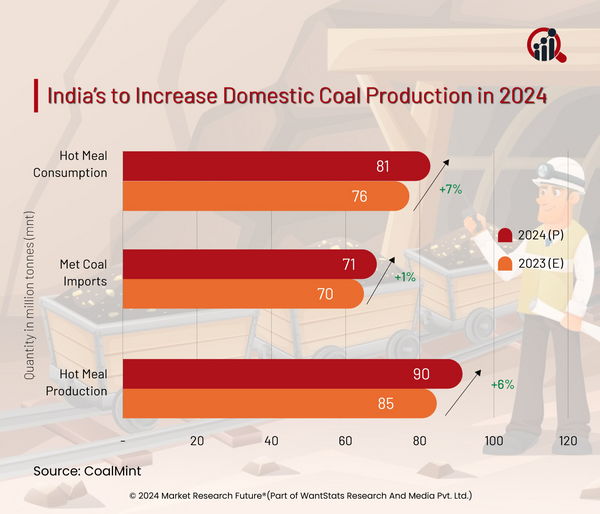India to Cut Imports of Coal in 2024
Renewables are a vital part of clean energy transition. The green transformation in emerging countries is quite a difficult task. However, fossil fuels create hindrances in the clean energy transition. In 2024, India’s coal consumption spiked higher than usual, reaching 773.6 million tonnes of coal. The coal consumption hike shows fossil fuel consumption may increase in future years with the growing power demands. India plans to cut its coal imports and improve its production in 2024.
According to energy demands in overly populated countries like India, it will take time for renewables to adhere to the system completely. The clean energy transition requires less emissions and less usage of fossil fuels. However, the demand for coal increase to provide uninterrupted energy to meet power requirements in the first of 2024. Hence, India dives into coal production and reduces its dependency on coal imports. Gradually, India's coal demands increased to meet domestic needs. India is the second largest coal consumer in the world. Experts claim India's energy market requires coal to meet baseload power requirements. It anticipates such power demands to increase shortly. Therefore, countries like India will be self-sufficient in domestic coal production in 2024. It will also reduce the dependency on coal imports from other countries. Data from the Ministry of Energy suggests that India’s coal imports 2024 will not exceed 160 million tons. However, it hinders the clean energy transition, but the country's ambitious targets with renewables are active. Renewable energy sources like solar and wind are actively supporting the green transformation. Similarly, if the nation successfully adopts renewables and increases production, fossil fuel production will decrease.
Experts claim that India's clean energy transition depends on energy management. Until India's clean energy sectors are strong, fossil fuels will be used by the energy sector. Therefore, India plans to build strong coal production for domestic use in 2024 to reduce coal imports from other countries.






